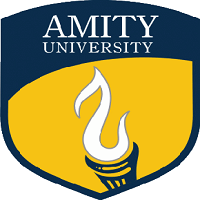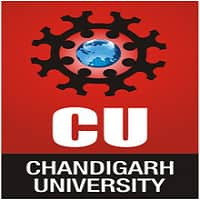UPES B.Sc Admissions 2025
Ranked #46 amongst Universities in India by NIRF | 1900+ Students Placed | 94% Placement | 633+ Recruiters | Last Date to Apply: 28th April
Bachelor of Science, popularly known as B.Sc is an undergraduate degree programme. The course duration of the B.Sc course is generally three years, and divided in six semesters. More than 1900 colleges offer BSc degree programmes, in which the majority of them are private. Candidates who have completed their 10+2 in the science stream can apply for the BSc degree programme.
BSc graduates can join any field, from research, and technology to healthcare, and education. Some of the career options available for BSc graduates are Teacher, Technical Writer, Lab Supervisor, and Pharmacist. The average salary of the BSc graduates is Rs. 3 to 4 LPA, which majorly depends on the experience and employment areas.
CUET UG Exam Date: 15 May' 2025 - 24 May' 2025
BSc full form is Bachelor of Science, is a three-year-long undergraduate degree programme. A BSc degree is awarded to candidates in the field of science. B.Sc courses are one of the most popular choices among Science students after Class 12. BSc degree programmes are designed to provide students with comprehensive knowledge of mathematics, sciences, engineering, technology, and computer science.
Ranked #46 amongst Universities in India by NIRF | 1900+ Students Placed | 94% Placement | 633+ Recruiters | Last Date to Apply: 28th April
Apply for Integrated M.Sc Biotechnology (5 Years, after 10+2) @ VIT Bhopal University | H-CTC 52 LPA
Particulars | Value |
|---|---|
Degree Name | BSc (Bachelor of Science) |
Level | Undergraduate |
BSc Course Duration | 3 years |
Semester/Yearly | Semester |
BSc Admission Process | Entrance Test/Merit-based |
BSc Eligibility Criteria | 10+2 |
| BSc Entrance Examination | CUET UG, MET, IPU CET, LPU NEST |
BSc Course Fees | Rs. 3,370 to Rs. 5.84 Lakhs |
BSc Top Colleges | BITS Pilani, Dayananda Sagar University, Christ University, Aligarh Muslim University, Banaras Hindu University |
Top Recruiters | Google, Glenmark Pharmaceuticals, Infosys, Cipla, L & T Infotech, Capgemini, TCS, Accenture, Amazon, HCL Technologies |
Types of Careers | Teacher, Technical Writer, Lab Supervisor, Pharmacist |
The B.Sc course fees vary depending on various factors such as the specialisation and type of institute. Before enrolling in any particular college, students need to check the eligibility criteria, admission procedure and the respective fees. The average B.Sc fees ranges from Rs. 3,370 to Rs. 5.84 Lakhs.
B.Sc degree provides advanced theoretical and practical knowledge of many subjects related to science. It allows the students to explore a variety of career paths and choose their desired career paths. After completion of a B.Sc degree, students can also opt for a Master of Science (M.Sc) or Doctor of Philosophy (Ph.D). They can even join many entry-level job roles.
Graduates can also study for a UPSC examination if they are interested in getting into civil services. Bachelor of Science degree also provides good job opportunities in the field of research and development. Due to many specialisations in B.Sc, graduates can contribute to areas such as administration, law, academics, and medicine.
Students seeking admission to BSc courses are required to fulfil some basic requirements before they get admission to any institute. It may differ based on the institute and the specialisation. Some of the important eligibility details are discussed below.
B.Sc degrees are offered in many specialisations. Students can choose the field based on their future goals and aspirations. Below are some of the popular specialisations of the B.Sc degree programme.
The admission procedure for B.Sc is mostly based on entrance examinations. After clearing the relevant entrance examinations students can choose their preferred specialisations. Examination such as CUCET is conducted for 14 central institutes. Many institutes also provide admissions based on the marks obtained in class 12th. Delhi University admits students in B.Sc programmes in all its affiliating colleges on merit based on marks in class 12.
Entrance examinations used for admission to the BSc degree programme are CUET UG, MET, and IPU CET. In the table below, we have mentioned the details of the BSc entrance examinations.
| Exam Name | Conducting Body | Exam Result |
|---|---|---|
NTA | CUET UG Result | |
MAHE | MET Result | |
GGSIPU | IPU CET Result | |
LPU | LPUNEST Result |
The cutoff score of a Bachelor of Science (B.Sc) is used to determine a student's admission to the programme. CUET cut-off is one of the most important criteria for admissions. The cutoff differs based on the number of students appearing for the examination and the difficulty level of the examination. It is released after the results of the entrance examinations are declared.
B.Sc degree is offered in various diverse specialisations. The syllabus will depend on the institute and the specialisations. In the table below, we have mentioned the syllabus of some of the popular specialisations of B.Sc degrees.
Mechanics | Mathematical Physics |
Waves and Optics | Electricity and Magnetism |
Technical Writing & Communication in English | Chemistry |
Digital Systems and Applications | Oscillations & Waves |
Microprocessors & Computer Programming | Digital Electronics |
Mathematics | Thermal Physics |
Mathematical Analysis & Statistics | Optics |
Quantum Mechanics and Applications | Numerical Analysis |
Electronic Devices | Atomic and Molecular Physics |
Statistical Mechanics | Electromagnetic Theory |
Nuclear & Particle Physics | Solid State Physics |
Kinetic Theory and Thermodynamics | Mechanics and Wave Motion |
Analog Systems and Applications | Elements of Modern Physics |
Algebra | Calculus |
Real Analysis | Basic Statistics & Probability |
Differential Equations | Analytical Solid Geometry |
Data Structures and Operating Systems | Matrices |
Mechanics | Sequences & Series of Real Numbers |
Linear Programming | Abstract Algebra |
Ring Theory and Linear Algebra | Theory of Real Functions |
Complex Analysis | Discrete Mathematics |
Numerical Analysis | Linear Programming & Its Applications |
Probability Theory | Vector Analysis |
Inorganic Chemistry | |
Periodic Properties | Atomic Structure |
s-Block Elements | Chemical Bonding |
p-Block Elements | Chemistry of Noble Gasses |
Organic Chemistry | |
Mechanism of Organic Reactions | Structure and Bonding |
Stereochemistry of Organic Compounds | Alkanes and Cycloalkanes |
Arenes and Aromaticity | Alkenes, Cycloalkenes, Dienes and Alkynes |
Alkyl and Aryl Halides | |
Physical Chemistry | |
Computers | Mathematical Concepts |
Liquid State | Gaseous States |
Colloidal States | Solid States |
Chemical Kinetics and Catalysis | - |
Many colleges in India offer a BSc degree in various specialisations. Students are admitted to the degree based on their academic performance and admission exam results. Here is a list of the BSc colleges in India's major cities.
Candidates can opt for any private or government college in India. The top BSc degree institutes in each of the following states are listed below:
Candidates after completing their B.Sc degree have various opportunities. If they are interested in further education, they can choose to pursue a master's degree or a doctorate in their desired field. Candidates can also join many entry-level positions in the workplace.
Graduates can contribute to various areas such as the private and government sectors, hospitals, healthcare agencies, and academics. Students can also appear for IIT JAM if they wish to pursue an M.Sc degree in their desired specialisation. B.Sc graduates can also try their hands in many government jobs like in ONGC, BHEL or Banking, SSC CGL.
B.Sc graduates can find jobs in various sectors depending on their respective subjects. Many fields like educational institutes, the healthcare industry, the pharmaceuticals and biotechnology industry, the chemical industry, research firms, testing laboratories, wastewater plants, oil industry offer jobs to B.Sc graduates. In this section, we have mentioned some of the career options that can be opted for after completing BSc courses.
| Job Profile | Job Description | Average Salary |
|---|---|---|
| Teacher | A teacher is a professional who helps candidates to acquire knowledge, competence, or virtue. He or she guides the students about numeracy and literacy, craftsmanship or vocational training, the arts, religion, civics, history, community roles, and life skills. | Rs. 2.9 LPA |
| Counsellor | A counsellor is a trained professional who advises clients by hearing them out. He or she may be a psychologist or social worker and helps people with things like career development, anger management, health, and lifestyle. | Rs. 3.6 LPA |
| Pharmacist | Pharmacists are professionals who advise patients about medications mentioned in the prescriptions. Pharmacists also review the safety levels of newly manufactured medicines and recommend drugs with proper diets. | Rs. 2.7 LPA |
Source: AmbitionBox
The salary, perks and allowance for B.Sc graduates vary as per the specialisation in which they have done their course. Similarly, a B.Sc Computer Science or Geology graduate can earn around 50,000 per month in any reputed firm. The salary is largely dependent on the institute from which the course has been done and one’s knowledge about the subject matter and the grades. In the table below, we have mentioned the BSc Salary in India in both private and public sectors.
| Sectors | Average Salary |
|---|---|
| Private | Rs. 5 LPA - Rs. 20 LPA |
| Public | Rs. 1.5 LPA - Rs. 26 LPA |
BSc graduates in India have a wide range of job opportunities in multiple fields and sectors. Graduates can work in academics as teachers or pursue careers in hospitality, travel, pharmacy, media, journalism, and publishing houses. Some students can also opt for careers in the corporate world. Various government and non-profit organisations employ BSc graduates for administrative work, social work, and research.
In India, many private engineering colleges offer Bachelor of Science (B.Sc) degrees. Students can visit the official websites of the colleges to check the fees and other course details.
| Colleges | NIRF Ranking | Fees |
|---|---|---|
| 34 | Rs. 61,860 | |
| 39 | Rs. 1.98 LPA | |
| Stella Maris College, Chennai | 37 | Rs. 82,200 |
| 25 | - | |
| 18 | - | |
| 45 | Rs. 7,320 | |
| 101-150 | Rs. 36,420 | |
| 7 | - | |
| PSG College of Arts and Science, Coimbatore | 20 | Rs. 2.27 Lakhs |
| 79 | Rs. 7,380 | |
| 98 | Rs. 1.27 Lakhs |
A government college is less expensive than attending a private college. Government colleges are known for their high academic standards in India. The following are some of the best government B.Sc colleges and its fees:
| Colleges | NIRF Ranking | Fees |
|---|---|---|
| 1 | Rs. 58,470 | |
| Deen Dayal Upadhyaya College, New Delhi | 24 | Rs. 83,530 |
| 3 | Rs. 3,940 | |
| Government Arts College, Coimbatore | 44 | Rs. 4,130 |
| 83 | Rs. 9,400 | |
| 2 | Rs. 73,800 | |
| Dyal Singh College, New Delhi | 48 | Rs. 41,150 |
| Government Home Science College, Chandigarh | 52 | Rs. 95,700 |
| 6 | Rs. 50,580 | |
| Jamal Mohamed College, Tiruchirappalli | 56 | - |
BSc degree is awarded to students who have pursued their bachelor's degree in any of the science courses, although many institutes provide the BSc degree for other subjects as well, such as Business Management, Engineering, Economics and Information Technology. A BSc course is a stepping stone for further education and research, like pursuing a master's degree and doctoral degree in science subjects.
Admission in B.Sc course is done through entrance examination in some colleges whereas many colleges offer admission on the basis of marks in class 12.
Students having B.Sc degree can get jobs in various fields lik teaching, technical content writing, research assistant in institutes and laboratories beside government jobs in ONGC, banking etc.
Job in government sector is through entrance examination conducted by respective authorities. As a B.Sc graduate, you become eligible to apply for jobs which require the eligibility criteria of B.Sc. Rest is dependent on qualifying the exam.
There are many colleges which are best for some programs and other best for some other programs. Students have to select their preferred choice of course and look for the best available option to them.
Some of the popular colleges are AIIMS Delhi, PGIMER Chandigarh, JIPMER Puducherry, and MMC Chennai.
It is important to differentiate between general BSc programs and specific professional BSc programs like BSc Nursing. Let me help you clarify:
General BSc Programs:
BSc Nursing:
Recommendations:
In summary, while general BSc programs may offer admission based on merit, it's essential to verify the specific requirements of each college. And for BSc nursing, EAMCET is often a factor.
Hope this works.
Top Colleges Offering B.Sc. LL.B. in India
1. WB National University of Juridical Sciences (WBNUJS), Kolkata
2. Gujarat National Law University (GNLU), Gandhinagar
3. National Law Institute University (NLIU), Bhopal
4. Saveetha School of Law, Chennai
5. Manipal University, Jaipur
6. KIIT School of Law, Bhubaneswar
7. SOA National Institute of Law, Bhubaneswar
8. UPES, Dehradun
9. Amity Law School, Mumbai
10. JECRC University, Jaipur
Hi riya
https://admission.nfsu.ac.in/pdf/NTA%20ENTRANCE%20EXAM%20SYLLABUS%20(1).pdf
This is syllabus link
It including a mix of general aptitude and knowledge areas, as well as specific topics related to forensic science and mass communication for certain programs.
And as it is of 100 marks exam and every year competition increases so you have to score more than 85 for good government college.
Thanks
Hello Annu,
digital forensics is a strong career choice with growing scope in cybersecurity, law enforcement and corporate investigations. since you're already studying forensic science and starting cyber forensics, you're on the right track to build skills in networking, ethical hacking, and digital tools. consider certifications like CEH or CHFI, and pursue MsC digital forensics for deeper specialization and better placements.
Hi aspirant,
To download the AIIMS B.Sc. Nursing last year's question paper , you can obtain it from the official website by following these steps:
To get a detailed syllabus and exam pattern for B.Sc. Nursing for AIIMS, you can visit here.
https://medicine.careers360.com/articles/aiims-bsc-nursing-question-paper

Ranked amongst top 3% universities globally (QS Rankings)

Ranked #1 Among all Private Indian Universities in QS Asia Rankings 2025 | Scholarships worth 210 CR

B.Sc (Hons) Admissions 2025 Now Open | Ranked Among the Top 100 Universities in the World by QS World University Rankings 2025 | Last Date: 28th Apr'25
#10 in India by NIRF Ranking | Institution of Eminence by Govt. of India | Scholarships Available
NBA Accredited | AICTE Approved | Use Code: Careers360 & Avail 50% Off on Application Forms | Last Date: 19th Apr’25
100+ Industry collaborations | 10+ Years of legacy